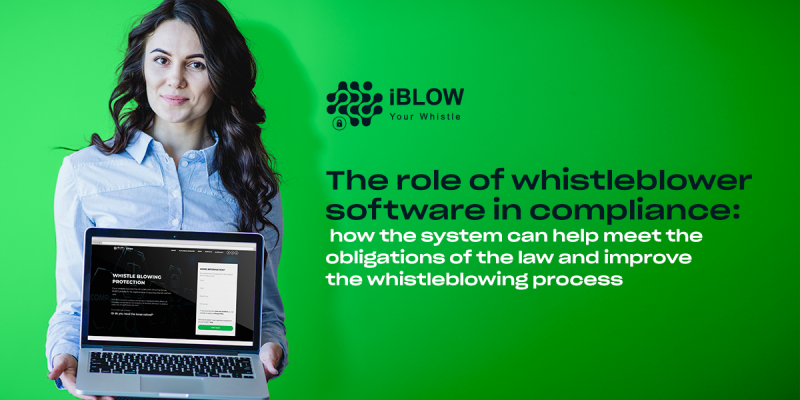Whistleblower protection should be an area of concern for all employers. The most influential public and private companies are currently investing in the efficient implementation of whistleblower channels and encouraging the use of these channels by employees.
Increasingly, entities and companies are turning to whistleblower management software tools. They also sometimes use third-party services to manage whistleblowing and mitigate risk, encourage reporting, and improve compliance.
A whistleblower management software will prevent many mistakes, miscommunications, avoid breaches and help create employee safety, and of course effectively protect whistleblowers.
Like everything in life, there are risks
Of course, there are risks. Any worker who reports misconduct and failures in an organization could face mistreatment, discrimination, threats, and even physical harm.
Whistleblowing can also be damaging to the company. Some companies have cited losing employees after a whistleblowing case. Encouraging whistleblowing can also foster a culture of fear if policies and procedures are not implemented effectively. It is up to the whistleblower and effective investigation to deal with and discourage unfounded complaints.
When weighing the pros and cons, however, the benefits that whistleblowing adds to public safety far outweigh the risks.
Fortunately, these risks can also be mitigated somewhat, if not entirely avoided! Following these 5 tips can make it clear to employees the depth and importance of whistleblowing:
-
Know the whistleblower’s rights and laws
A company and its employees need to know all the legal implications of whistleblowing. Whistleblowers have rights in the European Union, which must be respected and upheld in any whistleblowing procedure.
There are also responsibilities that whistleblowers have and therefore must be aware of.
-
Have a defined and accessible policy
Make sure you establish a whistleblowing policy that your employees have access to and are aware of. Any whistleblower should be able to anticipate how to proceed with whistleblowing and what the process might look like. That’s why it’s so important to set up appropriate whistleblowing channels for your employees to use if and when necessary.
-
Transparency and Accountability
Open communication about fraud and misconduct with employees and external parties shows accountability and honesty. Make sure you cultivate a sincere culture rather than a culture of fear.
-
Different reporting options
The EU Whistleblower Directive requires companies and public authorities to establish secure reporting platforms. Whistleblowers are often internally abused and mistreated after reporting a case. Being able to report anonymously may prompt more people to report. Establish anonymous reporting platforms and/or external reporting options to reduce this risk to the whistleblower.
-
Educate and Inform
Host educational trainings and workshops to inform employees about processes and policies. For example, having a whistleblower lawyer can also make the process easier and support the whistleblower. It is mandatory that every company has one or more whistleblower officers, properly appointed and identified, as well as trained specifically for such a role.
Inform the team about the best course of action if they decide to blow the whistle. Awareness can also lead to fewer instances of intimidation against whistleblowers by colleagues.
A hotline implemented through whistleblower management software is designed to allow a whistleblower to have a safe and easy place to make their exposure without fear of retaliation or disciplinary action. Since operational or corporate fraud is more likely to be brought about by whistleblowing, it is in the company’s interest to avoid the risk of no whistleblowing by providing easy-to-use, non-threatening ways for employees – and in some cases, contractors – to make anonymous or identified (confidential) reports.
Employees who detect possible abuse or violations of the law do not go to lawyers first. When the system is set up correctly, whistleblowers make use of the system and report anything they know they need to report. This is an advantage for the company, allowing it to investigate and resolve the reports internally first.
Final thoughts
Everyone should think of whistleblowing as a public service. Fraud and misconduct have lasting effects on people’s lives, and whistleblowing is one of the best ways to fight this.
Certainly, it can come with a price if not implemented and managed correctly. But the benefits of proper whistleblowing channels contribute to the overall well-being in organizations. It promotes an open and honest corporate culture in which all employees can feel safe and comfortable.
Having confidential and anonymous whistleblowing channels also makes it easier for employees and other stakeholders to speak up. This is not only great for your employees, but it means that your company can deal with problems more quickly and effectively.
If you are looking for a whistleblowing solution that is easy to use, considers all possible options regarding anonymity and secure two-way communication mandatory, has integrated workflows for multiple use cases and more, check out iblow.eu’s product and contact us for more information.
Maria Cristina Freitas, Lawyer
Published at: 09/05/2023
